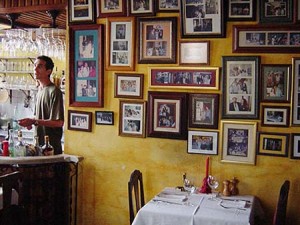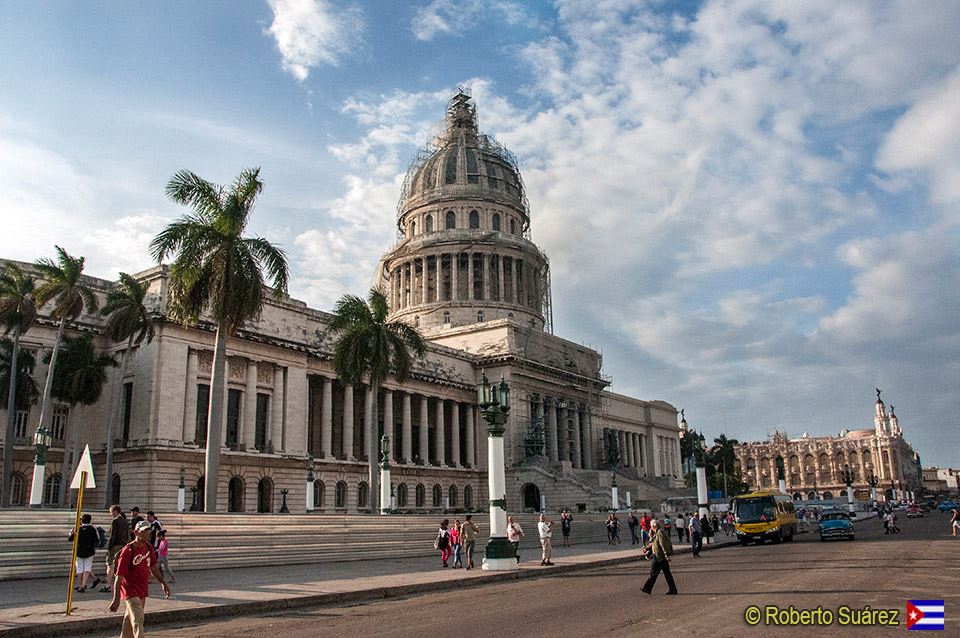The reforms undertaken by the government of Raul Castro have not released the productive forces and are tied to the very old philosophy of centralization and state control of the economy.
However, it is notable that Cuban incorporated the private sector have shown tremendous entrepreneurial spirit, despite the limitations of the reforms and the material difficulties to sustain their businesses. The amazing and inspiring is how hundreds of these businesses have not only managed to be successful, they are established and successfully deal with their state competitors, and even displace the market.
The private leasing is a proven creative ability of Cuban entrepreneurs example.
The type of lease is one of the most notable examples push the private sector in unfair competition against state enterprises in a number of tourist attractions in the country.
To show these results take the examples of Trinidad and Viñales; in both locations hosting capacity of the private sector exceeds that of the state.
Development of self-employment in Cuba (1993-2014)
Currently, in both tourist poles ability hosting the private sector is of 3,517 rooms (76.8%) available for rent at an average price per night from $ 27.50 convertible pesos (CUC), while those hotels controlled by state-owned enterprises have a capacity 1,063 rooms (23.2%) at an average price of $ 82.50 CUC.
The difference is significant. The private sector exceeds 2,545 rooms to the state sector in both tourist areas, despite having their hotels located in more favorable areas, like on the beach, in the case of Trinidad, and overlooking the valley, in the case of Viñales. The price difference is also outstanding: private room offer a price much cheaper than state hotel with a difference of $ 73.10 CUC per room: $ 27.50 CUC per night for $ 100.60 particular state.
However, the hotels managed by state enterprises have at their disposal a sophisticated logistics structure to bring tourists, much better and more advantageous than the private sector. Dozens of travel agencies manage the inventory of hotel rooms offer transportation agencies to transport tourists and are benefited with the management of tour operators in Europe, South America, Canada, Central America and the Caribbean.
Instead, the private sector is moving through quality service and low prices, which shows an interesting competition and transforming society, to the point that a farmer as Viñales village has become predominantly a tourist enclave. Many of its residents have declined to work in the field to break into support services to tourists, work more profitable. To do this, they have entered the e-commerce despite the limited access to the Internet. 95% of people who rent houses in both tourist areas have a email account (most of Yahoo and Gmail) to communicate with their customers.
CaféFuerte / Emilio Morales / Internetphotos / www.thecubanhistory.com
The Cuban History, Hollywood.
Arnoldo Varona, Editor.
CUBA: HOTELES EN VIÑALES Y TRINIDAD: CLARO EJEMPLO DEL SECTOR PRIVADO vs PODER ESTATAL.
Las reformas emprendidas por el gobierno de Raúl Castro no han liberado las fuerzas productivas y siguen atadas a la vetusta filosofía estatal de centralización y control de la economía.
Sin embargo, es notable que los cubanos incorporados al sector privado han mostrado un tremendo espíritu de emprendimiento, a pesar de las limitaciones de las reformas y las dificultades materiales para poder sostener sus negocios. Lo asombroso y estimulante es ver cómo cientos de estos negocios no solo han logrado ser exitosos, sino que han conseguido establecerse y lidiar satisfactoriamente con sus competidores estatales, e incluso desplazarlos del mercado.

El arrendamiento privado es un ejemplo probado de la capacidad creativa de los emprendedores cubanos.
La modalidad de arrendamiento constituye uno de los ejemplos más notables del empuje del sector privado en la desigual competencia contra las empresas del Estado en varios de los polos turísticos del país.
Para mostrar estos resultados tomemos los ejemplos de Trinidad y Viñales; en ambos lugares la capacidad de hospedaje del sector privado supera la del estatal.
Evolución del trabajo por cuenta propia en Cuba (1993-2014)
Actualmente, en ambos polos turísticos la capacidad de hospedaje del sector privado es de 3,517 habitaciones (76.8%) disponibles para la renta a un precio promedio por noche de $27.50 pesos convertibles (CUC), mientas que los hoteles controlados por empresas estatales tienen una capacidad de 1,063 habitaciones (23.2%), a un precio promedio de $82.50 CUC.
La diferencia es significativa. El sector privado supera en 2,545 habitaciones al sector estatal en ambos polos turísticos, a pesar de tener sus hoteles localizados en zonas más favorables, como en la playa, en el caso de Trinidad, y con vista al valle, en el caso de Viñales. La diferencia de precio también es sobresaliente: los particulares ofrecen un precio por habitación mucho más barato que los hoteles del Estado, con una diferencia de $73.10 CUC, por habitación: $27.50 CUC por noche los particulares por $100.60 los estatales.
Sin embargo, los hoteles manejados por las empresas estatales tienen a su disposición una sofisticada estructura logística para traer turistas, mucho mejor y más ventajosa que el sector privado. Decenas de agencias de viajes manejan el inventario de habitaciones de los hoteles, disponen de agencias de transporte para trasladar a los turistas y son beneficiados con la gestión de turoperadores de Europa, América del Sur, Canadá, Centroamérica y el Caribe.
En cambio, el sector privado avanza gracias a la calidad del servicio y los bajos precios, lo cual denota una competencia interesante y transformadora de la sociedad, al punto que un pueblo agricultor como Viñales se ha convertido en un enclave netamente turístico. Muchos de sus pobladores han declinado trabajar en el campo para incursionar en los servicios de asistencia a los turistas, labor mucho más rentable. Para ello, han incursionado en el comercio electrónico a pesar de las limitaciones de acceso a Internet. El 95% de las personas que arriendan casas en ambos polos turísticos tienen una cuenta de correo electrónico (la mayoría de Yahoo y de Gmail) para comunicarse con sus clientes.
CafeFuerte/Emilio Morales/Internetphotos/www.thecubanhistory.com
The Cuban History, Hollywood.
Arnoldo Varona, Editor.



 CUBA: HOTELS IN TRINIDAD AND VIÑALES: Example of State Power vs Private Sector. ** CUBA: HOTELES EN VIÑALES Y TRINIDAD: Claro Ejemplo del Sector Privado vs. Poder Estatal.
CUBA: HOTELS IN TRINIDAD AND VIÑALES: Example of State Power vs Private Sector. ** CUBA: HOTELES EN VIÑALES Y TRINIDAD: Claro Ejemplo del Sector Privado vs. Poder Estatal.
